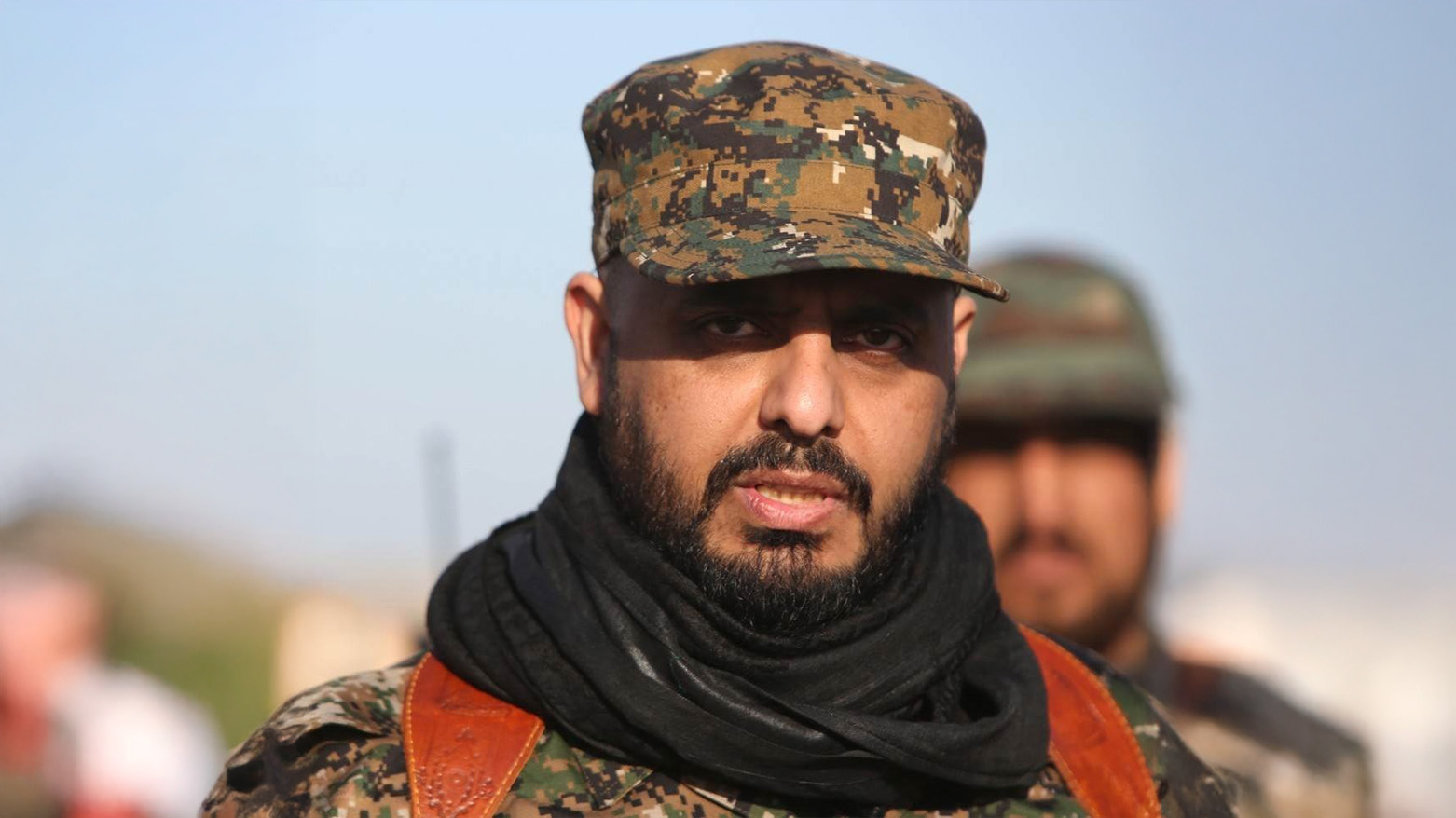‘An Honorable Crime’: Qais al-Khazali Boasts of Killing U.S. Soldiers
Qais al-Khazali, leader of the Iran-backed AAH militia, praised the 2007 murder of five U.S. soldiers as “honorable,” and hailed the attacker—now Babil’s governor. His remarks, reported by the Washington Institute, highlight the rise of militant figures in Iraq’s political system.

By Kamaran Aziz
ERBIL (Kurdistan24) – In a controversial and deeply troubling interview broadcast on May 29, Qais al-Khazali, the head of the Iran-backed Asaib Ahl al-Haq (AAH) militia and a U.S.-designated terrorist, openly praised his involvement in the 2007 Karbala attack that led to the cold-blooded murder of five unarmed American soldiers.
As reported by the Washington Institute for Near East Policy, al-Khazali used the Alawla TV platform to not only acknowledge but celebrate his role in one of the most heinous attacks of the Iraq War, calling it an “honorable cause” and distinguishing it from what he described as “non-honorable” acts against Iraqi security forces.
A Chilling Recollection of Terror
The 2007 Karbala operation, executed under al-Khazali’s directive, targeted the Karbala Provincial Joint Coordination Center where U.S. soldiers were stationed. According to declassified U.S. military interrogation transcripts, al-Khazali authorized Adnan Fayhan – then a field commander for AAH – to carry out the raid. Fayhan is now the governor of Babil province.
The operation was backed by Iraq’s Islamic Revolutaionary Guard Corps-Qods Force (IRGC-QF), which reportedly constructed a full-scale mockup of the compound in Iran to train attackers. The assialants, dressed in U.S.-style military uniforms, breached the center, abducted four soldiers, and later executed them – three while handcuffed and one while receiving treatment at a hospital. A fifth soldier, Private Johnathon Millican, died at the onset by throwing himself on a grenade to protect his comrades.
Al-Khazali justified the assault under “sharia law” during U.S. custody, a chilling claim that underscores his ideological rigidity and militant worldview.
Political Ascent of a Militant
Adnan Fyhan al-Dulaymi, the man who led the Karbala attack’s execution and now Babil’s governor, was described by Michael Knights of the Washington Institute as AAH’s “most successful political experiment.” His appointment on February 6 took place in a secretive early-morning session that was boycotted by several council members, reflecting deep unease over his background.
A former Sadrist militia commander and a long-time operative with ties to Hezbollah and Iran, al-Dulaymi has leveraged his militant credentials into a career in politics. He first appeared in parliament in 2014and later became key member of Iraq’s defense and security committee. His political bloc al-Sadiqoun, is the formal political arm of AAH.
Al-Dulaymi has not hidden his support for violent resistance, On Oct. 7, 2023, he congratulated Hamas for its “al-Aqsa Flood” attack against Israel and referred to Israeli state as a “cancerous gland.”
A Militia’s Path to Power
Al-Khazali’s Alawla TV remarks were prompted by a comparison to Ahmed al-Sharaa, Syria’s acting president who himself gained power after ousting Bashar al-Assad from political throne in Syria, whose invitation to an Arab League summit was recently blocked due to his own past insurgent activities.
Knights wrote that al-Khazali, responding to the question which was asked by al-Sharaa referring to their joint custody in U.S.- detention facility Bucca camp in Basra, insisted on a moral distinction between his detainment and ah-Sharaa’s, stating:
“The prisons of the American occupation held people on various charges. One person was arrested for attacking American forces and this is an honorable cause. Another was arrested for attacking the [Iraqi] security forces, [and] that is not honorable. The difference between him and me is that I was arrested for resisting the American occupation and for the famous Karbala operation. I was not charged with attacking the Iraqi forces, whereas one of [Sharaa's] charges was attacking the Iraqi security forces.”
His words serve as a stark reminder of how militant groups tied to IRGC-QF are not only unrepentant for acts of terrorism but are embedding themselves in Iraq’s political mainstream. According to the Washing Institute, there is a prevailing consensus within the Shiite Coordination Framework that crimes against U.S. forces are neither illegal nor dishonorable.
This normalization of violence, analysts warn, raises serious implications for Iraq’s future. Prime Minister Mohammed Shia al-Sudani, whose ascent to power was facilitated in part by al-Khazali, continues to cooperate with AHH, casting doubt on the government’s commitment to demilitarization and democratic governance.
The U.S. Response and Moral Reckoning
The United States has not officially responded to al-Khazali’s latest remarks. However, his statements come at a critical juncture as Iraq approaches national elections and a potential reshuffling of its leadership. The elevation of individuals directly implicated in anti-American terrorism to provincial governorship underscores the enduring influence of IRGC-QF-linked militia groups within Iraq’s political system.
As Michael Knights argues, these developments should prompt a reevaluation of U.S. policy toward Baghdad. “Terrorist politicians,” he calls them, now enjoy legitimacy and access to state institutions. The fact that such figures remain unapologetic about war crimes committed against U.S. personnel complicates any prospect of lasting security cooperation.